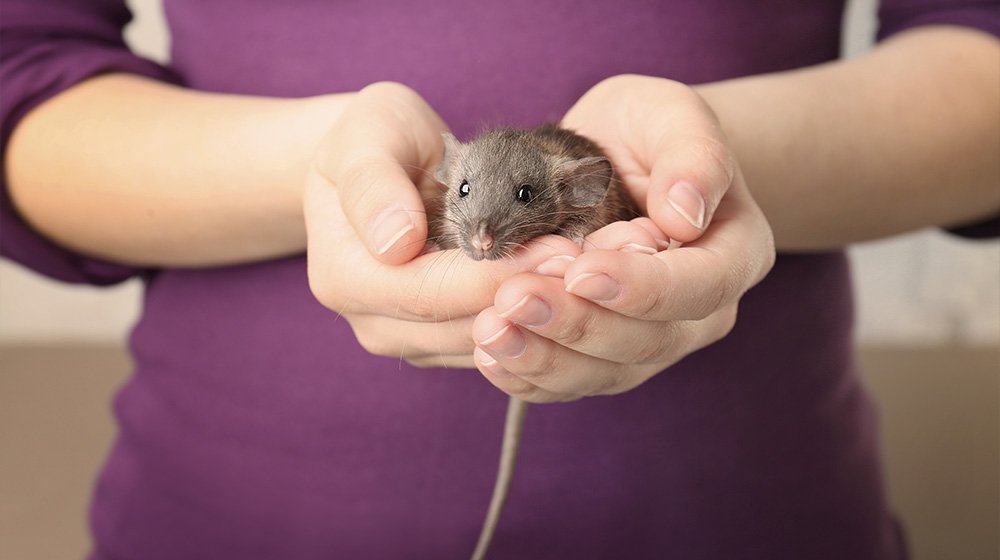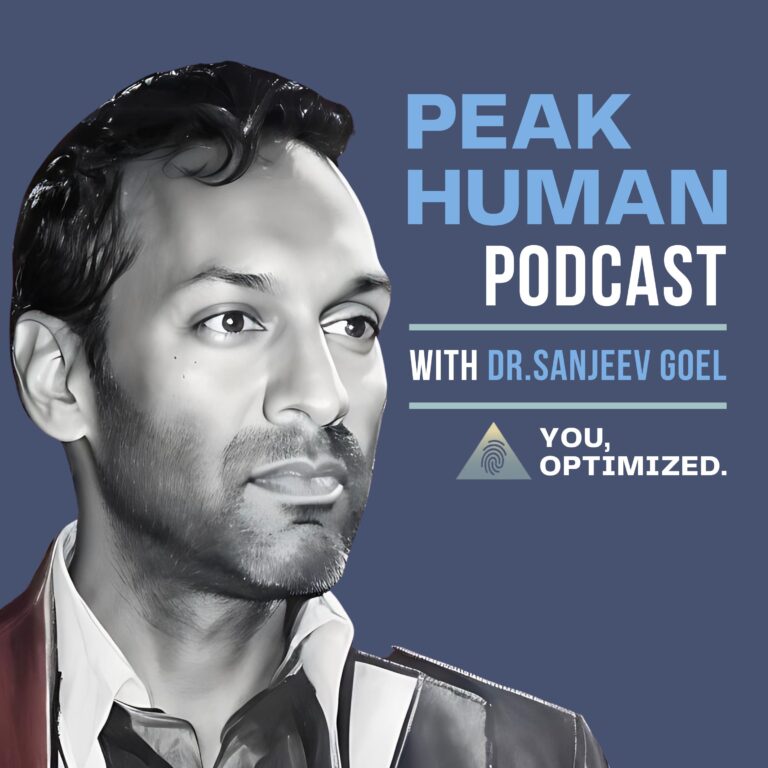Overview
Aging is a “natural” process that affects all living things. It is characterized by a gradual deterioration in physical and cognitive functions, leading to the eventual death of an organism.
Despite advances in medicine, aging remains an inevitable part of life. As we grow older, our cells undergo changes that decrease their ability to function effectively. This phenomenon leads to a decline in overall health and an increased risk of age-related diseases such as dementia, cardiovascular disease, and cancer.
However, the science of epigenetics has provided new insights into the aging process, opening up the possibility of reversing it. Current research has shown that epigenetic changes may be a critical factor in aging. By manipulating these changes, it may be possible to delay or even reverse the effects of aging to improve health and longevity.
This article discusses how humans can reverse aging after animal studies show it is possible in mice. Also, we will analyze the role of epigenetics in aging and how it helps scientists understand aging and utilize it as a key to unlocking longevity.
Aging Can Be Driven Backward at Will in Mice. Are We Next?
Aging: When Cells Fail to Read DNA

We have always thought that aging is inevitable and irreversible. But what if we can intervene with the processes that involve our genes to control aging?
Gene expression and the science of epigenetics are the two emerging factors that may open the door to driving aging backward at will.
Gene Expression in Aging
Aging has long been thought to result from accumulated cellular damage over time. While this is undoubtedly a contributing factor, recent findings have revealed that changes in how our genes are “expressed” can also play a role in the aging process.
Gene expression refers to the process by which the information contained within our DNA is converted into proteins and molecules that carry out specific tasks. In other words, it translates genetic material into cells’ products, from which the associated characteristics are manifested through a visible phenotype. However, as we age, changes in gene expression occur, leading to a decline in cellular function and an increased risk of diseases.
Gene Expression and Epigenetics
These changes in gene expression can be influenced by various factors, including the environment, lifestyle factors, and even abnormal epigenetic modifications to our DNA. Epigenetic changes involve adding or removing molecular tags to our DNA that can affect how it is expressed without altering the underlying genetic code. As a result, epigenetics can influence aging and the development of age-related diseases.
For example, smoking has been shown to induce changes in DNA methylation, one of the most well-known epigenetic changes. If DNA methylation happens to the tumor suppressor genes, it can lead to their switch-off and contribute to lung cancer development. Similarly, DNA methylation of genes that regulate oxidative stress and inflammation can increase the risk for various diseases, including cardiovascular disease.
By better understanding the mechanisms that drive changes in gene expression, one of which is epigenetics, we can develop new strategies for combating aging and improving health in later life. So what exactly is epigenetics, and what makes it so powerful?
Understanding Epigenetics and How It Works
What is Epigenetics?
Epigenetics refers to the science of gene expression changes that occur without DNA sequence alterations. Simply put, it focuses on how genes are activated and inactivated, influencing how they are expressed. This effect is achieved by altering the expression of our DNA by adding or removing molecular markers, like methyl groups, from it.
Dietary habits, lifestyle choices, stress levels, and toxins exposure may influence how genes are expressed by causing epigenetic changes. For example, research on rats showed that a high-fat diet added methyl groups to specific genes, changing their DNA methylation expression and contributing to obesity and other health problems.
Epigenetics and Health
Cancer is another example of how epigenetic changes may impact gene expression and disease. For example, uncontrolled cell proliferation is a hallmark of cancer, which can be due to genetic abnormalities. However, research shows that epigenetic changes may also be a key determinant in the development and treatment of cancer.
Epigenetic changes can alter how genes controlling cell division and death are expressed. A malignant phenotype may develop due to this phenomenon, and typical gene expression may become disrupted. Also, modifications to epigenetic markers may help cancer cells develop drug resistance, making it harder to treat the condition.
These findings underscore the significance of epigenetics in disease progression and the possibility of epigenetic therapeutics to enhance treatment outcomes. Creating novel methods for treating illnesses and improving patient outcomes may be feasible by focusing on the precise epigenetic modifications that underlie the specific pathologies.
Epigenetics and Aging Reversal in Mice
Methods Used to Reverse Aging in Mice
A study by Harvard Medical School has revealed that the loss of epigenetic information can drive aging and that restoration of this information can reverse it. The study shows that mice age due to a breakdown in epigenetic materials and that those indicators of aging can be reversible by restoring the integrity of the epigenome.
Specifically, the research was conducted on mice using a system called ICE (inducible changes to the epigenome). With this method, researchers could speed up aging-related epigenetic changes. They found that the aging process was associated with the loss of epigenetic marks, particularly in DNA methylation, which controls gene expression.
Yet, the scientists were able to restore the epigenetic marks in aged mice, improving their health and increasing their lifespan. The restoration was achieved using drugs targeting specific genes, including medicines targeting the enzymes responsible for removing epigenetic marks. The mice showed improvement within a few days, proving that aging is reversible and that drugs targeting specific genes can reverse the process.
Aging Reversal in Mice and Humans: Remaining Barriers
The possibility of reversing the aging process has been explored in mice with promising results. Still, the same cannot be said for humans. While much research has been done in mice, and the restoration of epigenetic information has been shown to reverse aging in mice, the human system is much more complex. The specific techniques for changing the aging process in humans have yet to be determined.
The human body has a more diverse epigenetic pattern, and many factors, such as genetics, lifestyle, and environment, play a role in the aging process. Also, ethical considerations come into play when applying drugs or other techniques to reverse human aging. So while the research in mice is exciting, much more research and development are necessary before any similar methods can be applied to humans.
The Benefits and Risks of Reversing Aging
It is intriguing to consider the possibility of extending human life and improving health by interfering with human epigenetics and gene expression. Nevertheless, it is also vital to consider this approach’s potential benefits and risks.
On the one hand, the possibility to stop or treat age-related illnesses like Alzheimer’s, cancer, and heart disease lies in the capacity to reverse aging by focusing on specific epigenetic changes. But on the other hand, it could also increase healthy longevity and quality of life by re-establishing typical gene expression and cellular function.
Still, there might be hazards involved with this strategy. For example, to preserve normal cellular function and prevent the onset of illnesses like cancer, reversing aging to the point where one reaches “age zero” may cause the loss of genetic and cellular diversity. Furthermore, interfering with the complex epigenetic changes as we age may have unforeseen consequences like the onset of new illnesses or cancer promotion.
Bottom Line: Aging Can Be Reversible at Will
The potential of epigenetics to revolutionize the field of aging research is exciting and holds much promise for the future. Yet, it is crucial to proceed with caution while trying to reverse aging and focusing only on aspects known to contribute to the development of age-related disorders. By doing this, we could reap the advantages of slowing down the aging process while reducing the dangers and negative consequences.
Meanwhile, the research by Harvard Medical School shows that the ICE method gives scientists a fresh approach to examining how epigenetics affects aging and other biological processes. On the one hand, the research provides a pathway for the renewal of cells and tissues. But on the other hand, it encourages other scientists to look at ways to slow down and even reverse the aging process to prevent diseases.
References
Baylin, S. and Jones, P. (2016). Epigenetic Determinants of Cancer.
Deshpande, S. et al. (2020). High-fat Diet-induced and Genetically Inherited Obesity Differentially Alter DNA Methylation Profile in the Germline of Adult Male Rats.
Sinclair, D., Yang, J. et al. (2023). Loss of Epigenetic Information as a Cause of Mammalian Aging.
If you have questions about how humans can reverse aging or any health problems discussed here, connect with us and learn more.
At Peak Human, our team of healthcare professionals helps you reach your ‘peak’ health with a custom whole-person approach. Using the most cutting-edge, science-backed biohacking and aesthetic tools available today, we help you achieve the highest physical/cognitive performance state, leading to an improved overall quality of life.
Don’t hesitate to contact us for questions or to book an appointment. Get personalized support and insight from expert physicians.
UP NEXT:
- Understanding Biological Age Vs. Chronological Age
- How to Slow Down Aging Through Stress Manipulation
- Human Hibernation as Possible Answer to Longevity







2 Responses
Contact me next week
Please
My body has no idea it will soon be sixty, yet the human construct of time is telling it so. I wonder if the removal of time would allow my body to continue to strengthen?